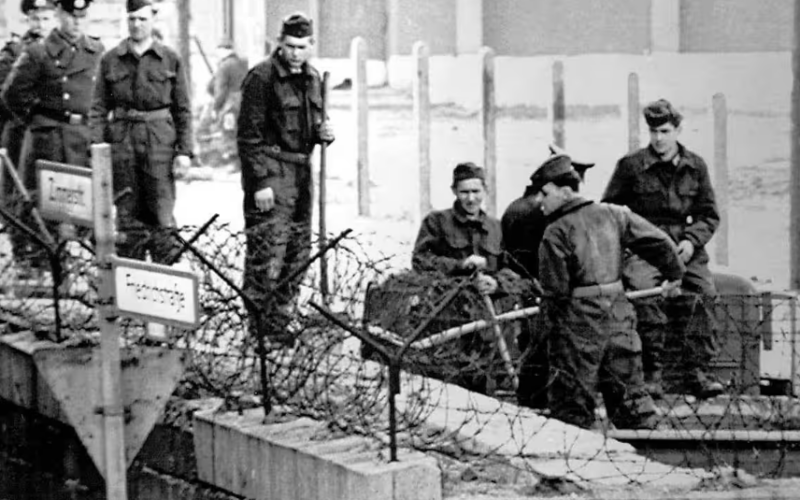Martin Naumann, a former Stasi officer, is set to face trial for his involvement in a 1974 shooting at the Berlin border, marking a significant departure from past prosecutions as he becomes one of the first former East German officials to be charged with murder rather than manslaughter.
The case, which dates back nearly five decades, centers around an incident at the Berlin Wall where Naumann, then serving in the East German border guard, allegedly fired a fatal shot at a civilian attempting to escape to the West. The victim, whose identity remains undisclosed, was one of many individuals who sought to flee the repressive regime of East Germany in pursuit of freedom and opportunity.
Naumann’s indictment for murder rather than the lesser charge of manslaughter is emblematic of evolving attitudes towards accountability for human rights violations committed during the Cold War era. While previous prosecutions of former East German officials primarily focused on charges of manslaughter or accessory to manslaughter, the decision to pursue a murder charge against Naumann reflects a growing recognition of the gravity of state-sanctioned violence and the need for justice for victims and their families.
The trial of Martin Naumann carries profound significance not only for the individuals directly affected by the Berlin Wall shootings but also for broader efforts to reckon with the legacy of East Germany’s authoritarian regime. The Berlin Wall, erected by the East German government to stem the flow of defections to the West, served as a stark symbol of the division between East and West and the oppressive measures employed to maintain control.
The prosecution of Naumann represents a step towards accountability for the injustices perpetrated by the East German regime and its agents, including the Stasi, the notorious secret police force responsible for surveillance, repression, and persecution of dissidents. By holding individuals like Naumann accountable for their actions, Germany seeks to confront the dark chapters of its past and reaffirm its commitment to upholding the rule of law and respect for human rights.
The decision to charge Naumann with murder underscores the significance of individual responsibility in cases of state-sponsored violence and human rights abuses. While it may be tempting to attribute such atrocities solely to the actions of a repressive regime, accountability for human rights violations requires holding individuals accountable for their role in perpetrating or enabling injustice, regardless of their position or rank within the hierarchy of power.
Moreover, the trial of Martin Naumann serves as a reminder of the enduring trauma and pain inflicted upon victims and their families by the policies of authoritarian regimes. The shooting at the Berlin border in 1974 was not an isolated incident but rather a tragic manifestation of the systemic violence and repression that characterized East Germany’s approach to dissent and resistance. As such, the trial represents an opportunity to honor the memory of those who lost their lives in the struggle for freedom and to acknowledge the suffering endured by countless individuals under oppressive regimes.
In conclusion, the trial of Martin Naumann for the 1974 Berlin border shooting marks a watershed moment in efforts to confront the legacy of East Germany’s authoritarian regime and hold accountable those responsible for state-sponsored violence and human rights abuses. By charging Naumann with murder, Germany reaffirms its commitment to justice, truth, and reconciliation in the aftermath of historical injustices. As the trial proceeds, it is imperative to remember the victims of the Berlin Wall and to ensure that their voices are heard in the pursuit of accountability and closure.







